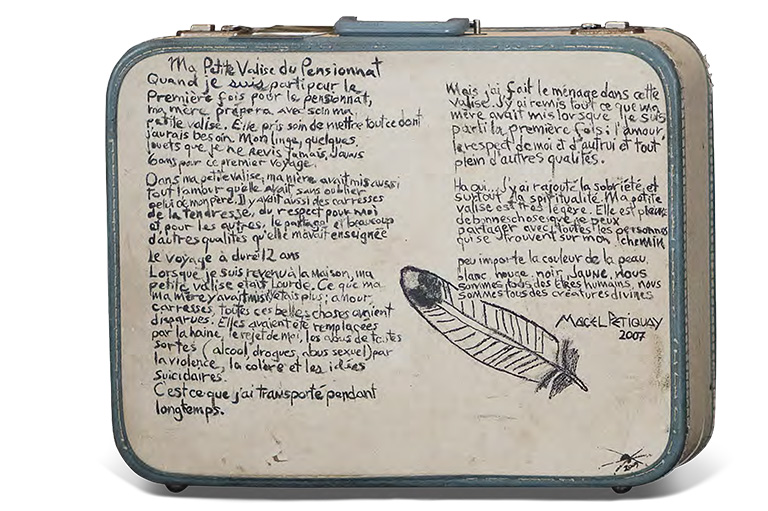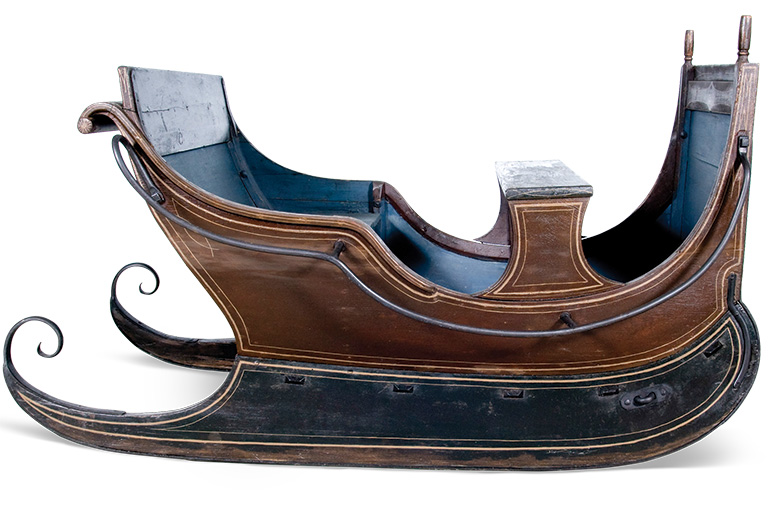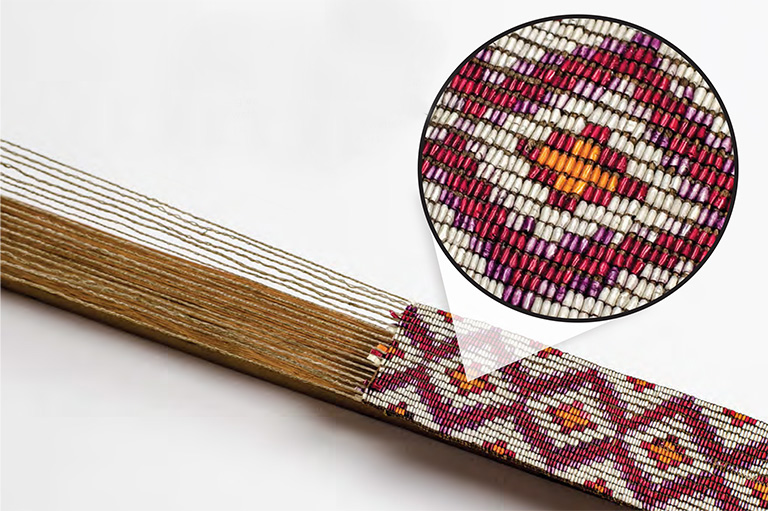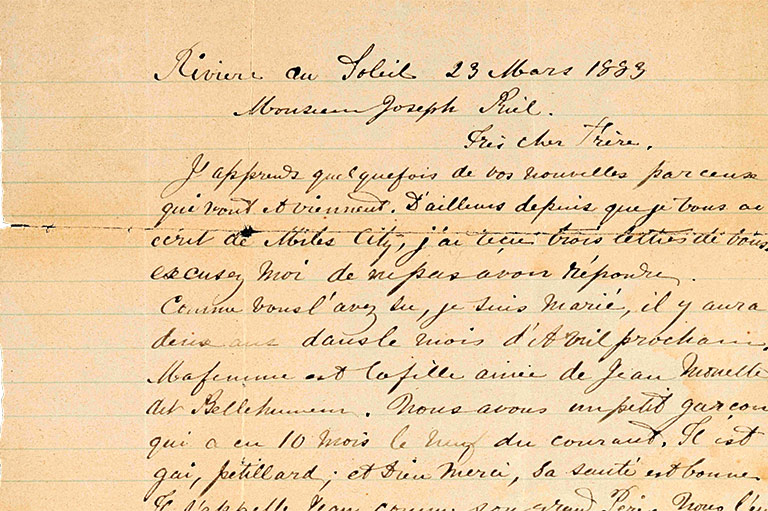Louis Riel's Moccasins
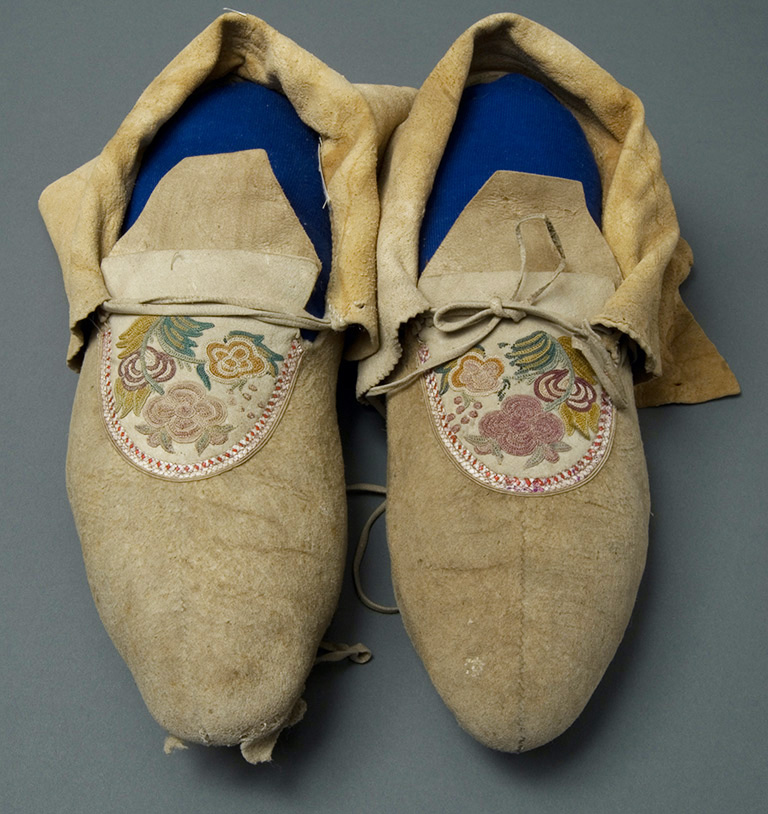
In 1869–70, the francophone and anglophone Métis living in the Red River Colony in present-day Manitoba united to negotiate the entry of Rupert’s Land into Canadian Confederation and to guarantee their ancestral rights. At their head was Métis leader Louis Riel, the owner of these moccasins.
Despite some bumps in the road, the new province of Manitoba was successfully incorporated into Canada. However, Louis Riel and other Métis leaders were forced into exile for their summary execution of an Ontario settler named Thomas Scott.
The following decade was marked by intensive colonization of the West, while the federal government ignored the grievances of Manitoba’s white settlers, Métis, and several First Nations. Discontent took hold of the Manitoba population, which brought Louis Riel back from his exile in the United States.
A new provisional Manitoba government was formed, and armed clashes broke out between the Canadian militia and the resistance fighters. Government troops gained the advantage and suppressed the resistance.
Louis Riel was tried for high treason and sentenced to hang. He was executed on November 16, 1885. After his death, his moccasins were separated: one remained in the West, while the other ended up with the Queen’s Own Rifles infantry reserve regiment in Toronto. The separation of Riel’s shoes was an eloquent symbol of Canadians’ divided opinions about Riel: A hero among the Métis, French Canadians, and some First Nations, he was perceived as a traitor elsewhere in Canada.
In 2002, the moccasins were brought together at the Saint-Boniface Museum, perhaps a sign of a reconciliation thanks to the passage of time and a better understanding of history.
With 7 uniquely curated newsletters to choose from, we have something for everyone.
Themes associated with this article
Advertisement
More objects from 50 Merveilles
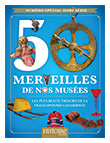
This special issue of Histoire Canada highlights beautiful treasures from Franco-Canadian communities across Canada. Available in French only.



